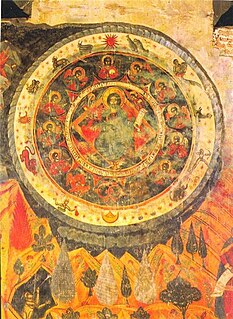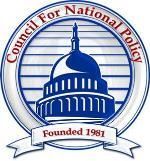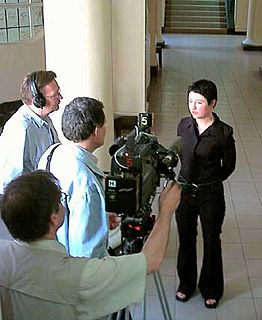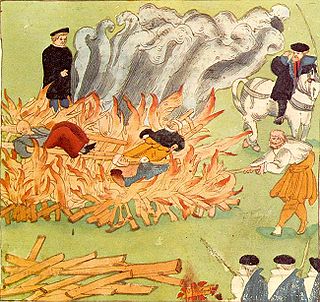 W
WAmerican Gospel is a documentary series first shown on Netflix. Two episodes have been produced to date: American Gospel: Christ Alone (2018) and American Gospel: Christ Crucified (2019). The former deals with the Word of Faith movement and prosperity theology, while the latter addresses atonement and hell.
 W
WOn Christmas Eve, December 24, 1968, the crew of Apollo 8 read from the Book of Genesis as they orbited the Moon. Astronauts Bill Anders, Jim Lovell, and Frank Borman, the first humans to travel to the Moon, recited verses 1 through 10 of the Genesis creation narrative from the King James Bible. Anders read verses 1–4, Lovell verses 5–8, and Borman read verses 9 and 10.Around the world, television sets glowed with the broadcast. One in four people on Earth—roughly a billion people spread among 64 countries—listened to the reading. Within 24 hours, recorded broadcasts of the address from the moon reached people in another 30 countries. Audiences in North and South America as well as Europe tuned in live thanks to the recently launched Intelsat 3 satellite. COMSAT put the satellite into operation a week ahead of schedule so that international audiences could follow the flight.
 W
WCatholic–Protestant relations refers to the social, political and theological relations and dialogue between the Catholics and Protestants.
 W
WAstrology had small amounts of support in early Christianity, but support waned during the Middle Ages. Support for it grew again in the West during the Renaissance.
 W
WThe relationship between Christianity and politics is a historically complex subject and a frequent source of disagreement throughout the history of Christianity, as well as in modern politics between the Christian right and Christian left. There have been a wide variety of ways in which thinkers have conceived of the relationship between Christianity and politics, with many arguing that Christianity directly supports a particular political ideology or philosophy. Along these lines, various thinkers have argued for Christian communism, Christian socialism, Christian anarchism, Christian libertarianism, or Christian democracy. Others believe that Christians should have little interest or participation in politics or government.
 W
WChristmas is the Christian celebration of the birth of Jesus Christ, which, in Western Christian Churches, is held annually on 25 December. For centuries, it has been the subject of several reformations, both religious and secular.
 W
WThe Council for National Policy (CNP) is an umbrella organization and networking group for conservative and Republican activists in the United States. It was launched in 1981 during the Reagan administration by Tim LaHaye and other right-wing conservative Christians, to "bring more focus and force to conservative advocacy". It has been described by The New York Times as "a little-known club of a few hundred of the most powerful conservatives in the country", who meet three times yearly behind closed doors at undisclosed locations for a confidential conference. The Nation has called it a secretive organization that "networks wealthy right-wing donors together with top conservative operatives to plan long-term movement strategy". The organization has been described as a "pluto-theocracy".
 W
WEweida v United Kingdom [2013] ECHR 37 is a UK labour law decision of the European Court of Human Rights, concerning the duty of the government of the United Kingdom to protect the religious rights of individuals under the European Convention on Human Rights. The European Court found that the British government had failed to protect the complainant's right to manifest her religion, in breach of Article 9 of the European Convention. For failing to protect her rights, the British government was found liable to pay non-pecuniary damages of €2,000, along with a costs award of €30,000.
 W
WThe Great Apostasy is a concept within Christianity, identifiable at least from the time of the Reformation, to describe a perception that the early apostolic Church has fallen away from the original faith founded by Jesus and promulgated through his twelve Apostles. Protestants used the term to describe the perceived fallen state of traditional Christianity, especially the Catholic Church, because they claim it changed the doctrines of the early church and allowed traditional Greco-Roman culture into the church on its own perception of authority. Because it made these changes using claims of tradition and not from scripture, the Church – in the opinion of those adhering to this concept – has fallen into apostasy. A major thread of this perception is the suggestion that, to attract and convert people to Christianity, the church in Rome incorporated pagan beliefs and practices within the Christian religion, mostly Graeco-Roman rituals, mysteries, and festivals. For example, Easter has been described as a pagan substitute for the Jewish Passover, although neither Jesus nor his Apostles enjoined the keeping of this or any other festival.
 W
WThe Inquisition, in historical ecclesiastical terminology also referred to as the "Holy Inquisition", was a group of institutions within the Catholic Church whose aim was to combat heresy. Studies of the records have found that the overwhelming majority of sentences consisted of penances, but that cases of repeat unrepentant heretics were handed over to the secular courts, which generally resulted in execution or a life sentence. The Inquisition had its start in 12th-century France, with the aim of combating religious deviation, particularly among the Cathars and the Waldensians. The inquisitorial courts from this time until the mid-15th century are together known as the Medieval Inquisition. Other groups investigated during the Medieval Inquisition, which primarily took place in France and Italy, including the Spiritual Franciscans, the Hussites, and the Beguines. Beginning in the 1250s, inquisitors were generally chosen from members of the Dominican Order, replacing the earlier practice of using local clergy as judges.
 W
WThe instrument of Jesus' crucifixion is generally taken to have been composed of an upright wooden beam to which was added a transom, thus forming a "cruciform" or T-shaped structure.
 W
WThe Mar Saba letter is a Greek document which scholar Morton Smith reported in 1973 that he had discovered in the library of the Mar Saba monastery in 1958. The document has been lost and now only survives in two sets of photographs. The text purports to be an epistle of Clement of Alexandria and contains the only known references to a "Secret Gospel of Mark".
 W
WMarcion of Sinope was an early Christian theologian, an evangelist, and an important figure in early Christianity. Marcion preached that the benevolent God of the Gospel who sent Jesus Christ into the world as the savior was the true Supreme Being, different from and opposed to the malevolent demiurge or creator god, identified with the Hebrew God of the Old Testament. He considered himself a follower of Paul the Apostle, whom he believed to have been the only true apostle of Jesus Christ, a doctrine called Marcionism. Marcion published the earliest extant fixed collection of New Testament books,
 W
WChristian naturism is the practise of naturism or nudism by Christians.
 W
WDorota Alicja Nieznalska is a Polish visual artist and sculptor.
 W
WOn the Jews and Their Lies is a 65,000-word anti-Judaic and antisemitic treatise written in 1543 by the German Reformation leader Martin Luther (1483–1546).
 W
WSIL International is a evangelical Christian non-profit organization whose main purpose is to study, develop and document languages, especially those that are lesser-known, in order to expand linguistic knowledge, promote literacy, translate the Christian Bible into local languages, and aid minority language development.
 W
WSol Invictus was long considered to be the official sun god of the later Roman Empire. In recent years, however, the established views on Sol Invictus have come under sustained attack, and at present the scholarly community is divided on Sol between traditionalists and a growing group of revisionists. In the traditional view, Sol Invictus was the second of two entirely different sun gods in Rome. The first of these, Sol Indiges, or Sol, was an early Roman deity of minor importance whose cult had petered out by the first century AD. Sol Invictus, on the other hand, was a Syrian sun god, whose cult was first promoted in Rome under Elagabalus, without success. Some fifty years later, on 25 December AD 274, the Roman emperor Aurelian did succeed to establish the cult of Sol Invictus as an official religion, alongside the traditional Roman cults.
 W
WThis article lists unfulfilled Christian religious predictions that failed to come about in the specified time frame, listed by religious group.
 W
WWinterval was a season of public events in Birmingham, England, organised by Birmingham City Council in each of two consecutive winters: first from 20 November to 31 December 1997, and then again from mid-October 1998 to mid-January 1999. The intention was to encourage people into the newly rejuvenated city centre, with secular and religious events marking religious and other occasions, including Christmas, during the relevant period. The name "Winterval" has since become used in the UK as shorthand for what are misrepresented as attempts to "rebrand" Christmas so as not to exclude non-Christians.
 W
WA witch-hunt, or a witch purge, is a search for people who have been labeled witches or a search for evidence of witchcraft. The classical period of witch-hunts in Early Modern Europe and Colonial America took place in the Early Modern period or about 1450 to 1750, spanning the upheavals of the Reformation and the Thirty Years' War, resulting in an estimated 40,000 to 50,000 executions. The last executions of people convicted as witches in Europe took place in the 18th century. In other regions, like Africa and Asia, contemporary witch-hunts have been reported from sub-Saharan Africa and Papua New Guinea, and official legislation against witchcraft is still found in Saudi Arabia and Cameroon today.
 W
WThe Woman's Bible is a two-part non-fiction book, written by Elizabeth Cady Stanton and a committee of 26 women, published in 1895 and 1898 to challenge the traditional position of religious orthodoxy that woman should be subservient to man. By producing the book, Stanton wished to promote a radical liberating theology, one that stressed self-development. The book attracted a great deal of controversy and antagonism at its introduction.